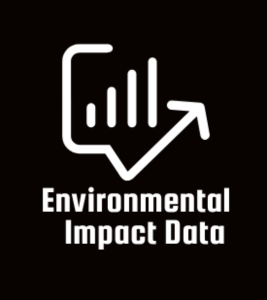Collaborating with EU CBAM Declarants: Strengthening Competitiveness for Asian Exporters and National Industries
CBAM and the New Standards of Global Trade
The European Union’s Carbon Border Adjustment Mechanism (CBAM) has emerged as a new benchmark in global trade. By imposing the same carbon costs on imported high-emission products as those borne by EU producers, CBAM highlights the importance of environmental responsibility and regulatory compliance for companies worldwide. For Asian exporters, this is not just a regulatory hurdle but a critical issue that directly impacts their survival and competitiveness in the EU market.
The Need for a Growth-Oriented Global Perspective
In this era of change, national ministries of industry and their subordinate agencies must adopt a growth-oriented global perspective. This approach goes beyond relying on existing knowledge or internally developed solutions, emphasizing the importance of leveraging the experience and insights of European experts. Instead of remaining confined to theoretical studies and internal discussions, it is time to embrace external expertise and implement actionable solutions.
Collaboration with EU CBAM Declarants: The Key to Practical Compliance
EU CBAM declarants play a vital role in assisting companies by reporting carbon emission data, guiding compliance procedures, and managing certificates. Collaboration with declarants offers the following benefits:
-
Data Verification and Trust Enhancement
Declarants verify exporter data and prepare reports to ensure compliance and maintain trust in the EU market. -
Carbon Cost Optimization
They assist companies in procuring CBAM certificates tailored to their carbon emissions, helping to reduce financial burdens. -
Rapid Adaptation to Regulatory Changes
CBAM is an evolving mechanism, and declarants enable companies to adapt swiftly to changes in the regulatory environment. -
Enhancing Export Competitiveness
Beyond regulatory compliance, declarants serve as strategic partners, turning environmental regulations into opportunities for exporters to enhance their competitiveness.
The Role of National Institutions: Practical Support through External Collaboration
National ministries and their affiliated agencies in Asia should take the following actions to maximize the benefits of collaboration with CBAM declarants:
-
Establish Official Cooperation Channels
Set up formal networks with EU CBAM declarants to help exporters respond to regulations quickly and effectively. -
Expand Support Programs
Provide technical and financial support to exporters for data collection and verification, facilitating compliance through collaboration with declarants. -
Learn and Apply Best Practices
Study successful CBAM implementations in Europe and adapt these practices to the unique characteristics of Asian industries.
From Learning to Action: The Importance of Collaborating with External Experts
National ministries must embrace a mindset focused on learning and growth through collaboration with external European experts. This approach requires moving beyond internal academic exercises and theoretical discussions, shifting instead to practical, results-driven partnerships.
CBAM declarants, in particular, are more than regulatory aides; they are strategic partners who can help exporters turn regulatory challenges into opportunities for market expansion and sustainable growth.
Turning Challenges into Opportunities through External Expertise
CBAM represents not just a regulation but a new standard for sustainability in the global economy. For Asian exporters, it is both a challenge and an opportunity. Governments and exporters alike must see this as a chance to collaborate with EU CBAM declarants and other European experts to transform these challenges into competitive advantages.
By adopting an open attitude toward external expertise and committing to proactive execution, Asian companies can strengthen their competitiveness in the EU market and build a sustainable and successful future on the global stage.
Now is the time for governments and industries to act. Through collaboration with CBAM declarants, Asian exporters can not only comply with regulations but also unlock new avenues for success in international trade.
